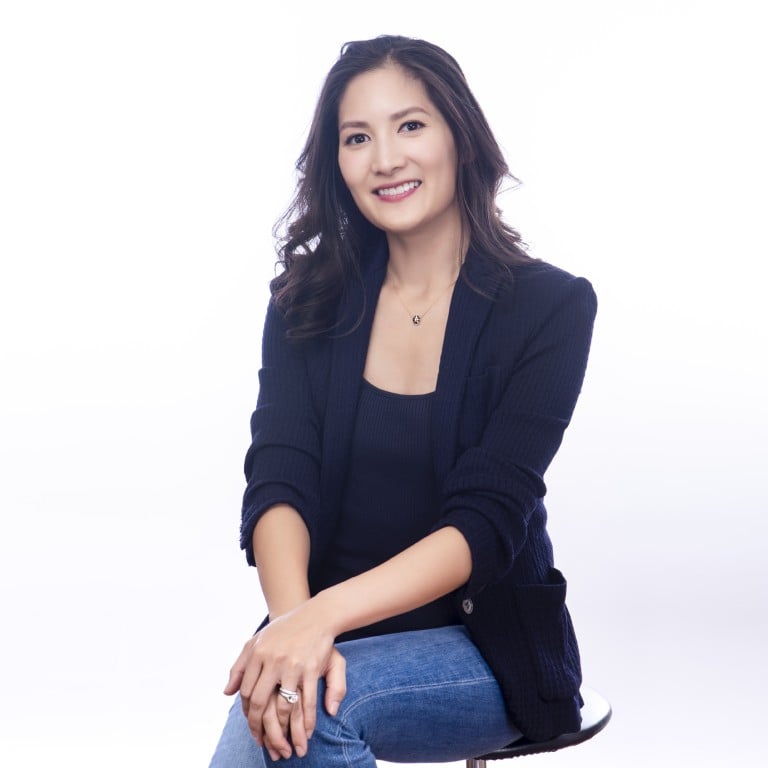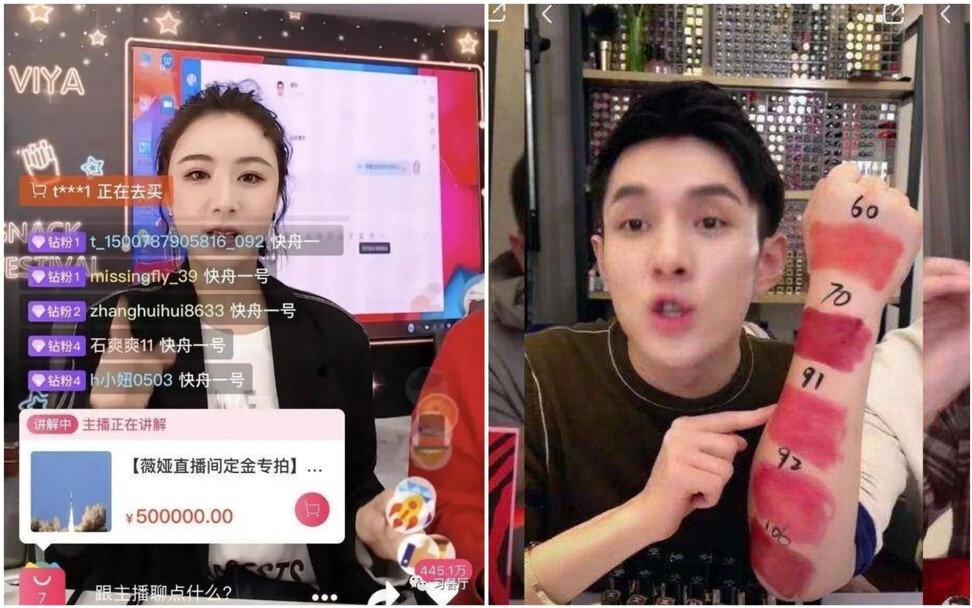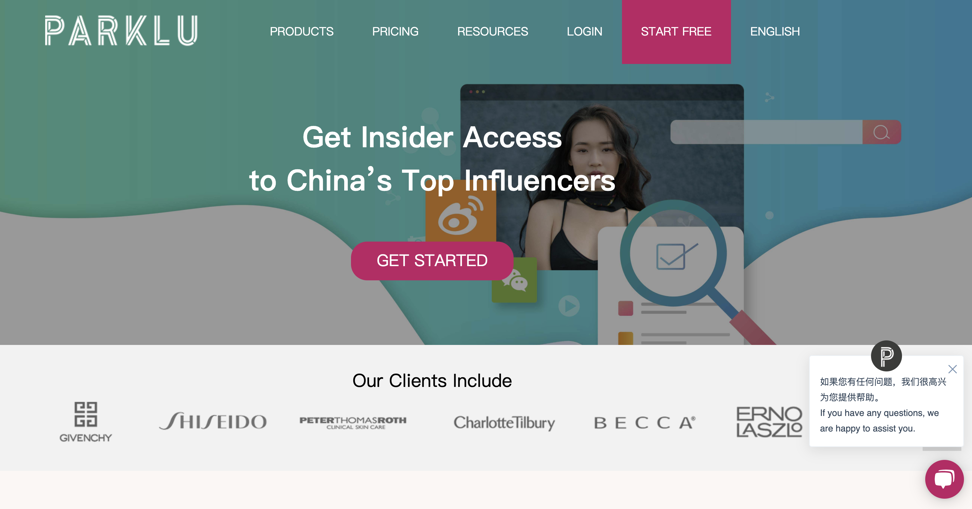
Meet Kim Leitzes, the US-born female entrepreneur behind Chinese influencer marketplace Parklu
- As the prominence of influencers expands, global beauty and luxury brands are looking for influencers, or key opinion leaders, to entice Chinese buyers
- Fashion marketing platform Launchmetrics acquires Parklu as China’s luxury consumers emerge as a bright spot during the coronavirus pandemic
When Parklu co-founder and CEO Kim Leitzes first pitched her start-up idea – a marketplace for online influencers – in 2014, most investors were sceptical.
Would people really buy an expensive handbag just because they saw a stranger carrying it on social media?

Five years since its launch, these online celebrities have become the bread and butter of Parklu’s business. The Shanghai-based platform matches clients to KOLs using data on over 100,000 such individuals, such as their online engagement numbers on various platforms.
While the company declined to reveal any numbers related to its financials, Parklu said its platform has served “hundreds” of clients, naming global beauty and fashion brands such as Shiseido and Christian Louboutin among them. And this week, the company announced it had been acquired by Paris-based fashion marketing platform Launchmetrics, which serves the likes of Hermès and Cartier from its offices in New York, Los Angeles, Tokyo and Europe.
I took a class on getting rich on Douyin, the Chinese TikTok
The CEO said the concept behind Parklu, which she founded with product director Alex Xu, was not always as clear as it is today.
As a teenager in Austin, Texas, Leitzes interned at a software start-up where the CEO encouraged her to try to start a company at least once in her life. After studying at the University of Pennsylvania’s Wharton business school, she worked on Wall Street with beauty and fashion clients for a few years before packing her bags for China in 2010.
“This was back when there was a financial crisis and I was sitting in Shanghai and [the upscale shopping neighbourhood] Xintiandi, the energy was here,” she said. “I felt that China was the place to be and so I just made the move. I didn’t have a specific idea. I just knew I needed to remove the golden handcuffs of being in finance and try in a new setting.”
(Alibaba is the parent company of the Post.)
What you need to know about China’s Singles’ Day online shopping festival
Struggling to find the right products to buy, Leitzes began blogging to catalogue her findings. And soon enough, she stumbled into the universe of Chinese KOLs.
“Back when I started … [Chinese microblogging site] Weibo was just starting to become popular, and many of the first-generation KOLs were called many other names: wanghong, bozhu,” she said.
Leitzes realised there was an unfilled demand for KOLs: “Many times, brands wanted to collaborate and work with them but the process was very relationship-driven.”

International brands also often lacked the know-how to select the most effective KOLs. While online popularity might be measured by the number of Instagram and Facebook “likes” elsewhere, these apps are blocked in China, and it is the number of WeChat and Weibo followers that count there.
“Not everything is an analogy: WeChat is not WhatsApp, and Weibo is not Twitter,” said Leitzes. “Some of our early clients … wanted a global solution because oftentimes, things are very divided between what’s your solution in China versus the rest of the world.”
As TikTok ban in US looms, rivals battle for influencers
And there are other finer points of distinction between different KOLs: just because someone excels at selling makeup, for instance, does not mean they have the expertise to market stilettos or baby chairs.
This is where Parklu comes in, helping brands find the right match by sifting through the data. The company said it aggregates around 20 data points to measure how effective and relevant a KOL is. Besides the number of clicks and forwards, it also checks whether the engagement that posts receive is real. In other words, were those Weibo comments from real people or were they bots? And finally, it tackles the million-dollar question: are the eyeballs translating into purchases?
“One of the challenges for brands working with KOLs is that it’s difficult to guarantee sales conversion,” said Chloe Zhe, an analyst at Daxue Consulting, a Beijing and Shanghai-based market research firm.
Zhe added that most contracts with KOLs contain no obligation on sales performance. Unlike sales associates who work on commissions, influencers are often paid as long as they show up on the job, even if they end up selling close to nothing.
Chinese e-commerce platform Xiaohongshu to launch live-streaming
Parklu currently has 42 staff across Shanghai, Hong Kong and Singapore, some of them KOLs themselves, according to Leitzes. That kind of hands-on, intuitive knowledge helps the team get a fuller picture of the quirks and differences of each social platform, she said.
Other KOLs also provide feedback to the team through a tailor-made app – the platform has a community of about 10,000 KOLs who signed up for the service voluntarily, Leitzes said.
For global high-end fashion and beauty brands, reaching out to Chinese consumers is of increasing importance. Even before global retail took a hit from this year’s coronavirus pandemic, China’s hunger for luxury goods was already unmatched by others.
In 2018, despite a slowdown in the domestic economy, Chinese shoppers bought more luxury goods at home and abroad than their peers from any single country, a Deloitte study showed.
Can Alibaba’s Singles’ Day shopping festival offer a lifeline to luxury brands?
While the most famous KOLs such as Huang and Li hardly rely on platforms like Parklu to find jobs, some say they can still be useful.
Mr Kira or “Jiliang”, a lifestyle blogger followed by more than 3 million people on Weibo, is a top-tier KOL by any measure. He belongs to China’s first crop of internet influencers who came to prominence writing on MSN Space – Microsoft’s now-defunct attempt at social media – before Weibo was even a thing. Last year, he interviewed Hugh Jackman as part of a Montblanc campaign while visiting the luxury watchmaker in Switzerland.

“For top-tier KOLs, our advantage is that we don’t have to approach clients ourselves for partnership opportunities,” he said. “Our relationships in the luxury and fashion segment are pretty secure at the moment.”
“But if we want to expand to other areas, perhaps something we’re not familiar with like cars or fast-moving consumer goods, then platforms [like Parklu] can help us.”
Parklu is not alone in this business, though.
Some, like Robin8, compete in the mass market space connecting KOLs with clients selling doughnuts, pizzas and five-dollar face wash. Others, like KOL Store, focus on Chinese brands. Many of them, just like Parklu, boast about working with big data and algorithms.
Leitzes said her edge lies mainly in her relationships with beauty and fashion brands, accumulated during her investment banking career.
I’ve always been excited about technologies that empower
Being a female consumer also gave her unique business insights, the mother of three said, adding that before most people understood the power of KOLs, she was already learning by experience.
She also tries to make sure that a female perspective is valued in Parklu: for example, when she was recruiting talent, Leitzes said she decided that the data team had to include women who could tell a makeup brand from a fashion brand – a “very important distinction”.
That philosophy permeates the company culture, said Leitzes, who sees Parklu as a technological solution for working women.
“When I look at our coverage of KOLs, a large majority are female, and for a large majority of them, this is their full-time job,” said Leitzes.
“I’ve always been excited about technologies that empower, whether that was an app that made it easy for KOLs to discover a campaign or pick a brand, or whether it was the marketing executive who has to approve and sign off on a budget spend on 100 or 500 KOLs.”

